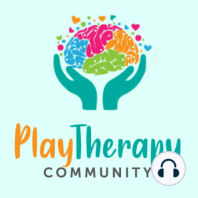58 min listen

35: How to Respond to an "I Hate You" Comment from Your Child
35: How to Respond to an "I Hate You" Comment from Your Child
ratings:
Length:
28 minutes
Released:
Sep 19, 2016
Format:
Podcast episode
Description
In This Episode: The words “I Hate You” can cut deep, especially when they are from your child. When emotions get heated all kinds of comments can surface. Let’s begin with an understanding of how the brain works. I love Dr. Seigal’s Handy Model of the Brain. His simple explanation of how the brain functions can give us a better understanding of how an “I Hate You” can slip out. The good news is, that there are things that you can do to help. Knowledge is a big part of it. When we get upset our Pre Frontal Cortex goes off line as Dr Siegel puts it. That basically means that our decision making gets high-jacked by our emotions in our limbic system. In other words, the child is really upset. Well, that’s probably something that you new already, right? When children, really people in general are extremely upset and their pre-frontal cortex is offline, or as Dr. Siegel puts it “Flipped their Lid” then they say and do things that are purely based in raw emotion, not having been filtered through their “Is this a good idea” filter. They may say or do things that they don’t mean or is not in their best interest. I’m a marriage counselor and can’t help but relate to how couples become “flooded” which is just another way of saying that they “flip their lids” and do and say things they often don’t mean and regret in many instances. Okay, so here’s how to remedy this. First, watch the short little video to Dr. Siegel’s handy model of the brain. You can find it on you tube by just putting ‘handy model of the brain” and I’ll also have a link to it in the show notes. Then, when your child is upset or angry always focus on a de-escalation goal. Empathy is a biggie in helping kids calm down and preserving and strengthening your relationship through it all. Reflect their feeling in a way that sounds and looks like you care. “I can see you feel really angry at me right now.” Have your body language match your words, so the child can get the message that you care. Also, be the thermostat, not the thermometer. Don’t get hot as your child gets hot, cool it down as your child gets hot. In other words, don’t get upset with the child, speak in a calm, loving voice to set the emotional temperature in the room. Remember, this isn’t a magic wand approach so I will take time, patience, and lots of love to remain calm, but it’s key. The effort is so very worth it. Another biggie is to avoid teaching in these moments. If your child’s thinking part of their brain is not functioning fully, then your words are not only being received, but they are likely to esculate the upset and remember the goal is deescuation. The processing of what’s alright and what’s not alright does need to happen, but only after your child is in a calmer state. This is an important piece too. My work is highly influenced by my training and experience in Child Parent Relationship Therapy created by Sue Bratton ,Garry Landreth, Theresa Kellam , and Sandra R. Blackard . I keep their manual within arms reach of me at my private practice. It’s one of my favorite resources. Over the years, I’ve learned many approaches and Child Parent Relationship Therapy is by far the very best. If you haven’t done so yet, be sure to listen to the episode on Child Parent Relationship Therapy with Dr. Dalena Dillman Taylor from University of Central Florida. Click Here to Listen to Episode 22 on Child Parent Relationship Therapy To help your child calm down, you need to be in a calm state. This is often much easier said than done in the early stages of this process. It’s really helpful to learn and use calming techniques with your child when times are good. During an angry episode, is not the time to learn calming skills. I like deep belly breaths, bunny sniffs, butterfly hugs, double doodling with both hands, and there’s some higher level ones such as pendulating and visualization that can be really effective. The most important thing
Released:
Sep 19, 2016
Format:
Podcast episode
Titles in the series (100)
31: Recognizing and Healing From Emotional Abuse: Laura Reagan, LCSW-C by Play Therapy Community